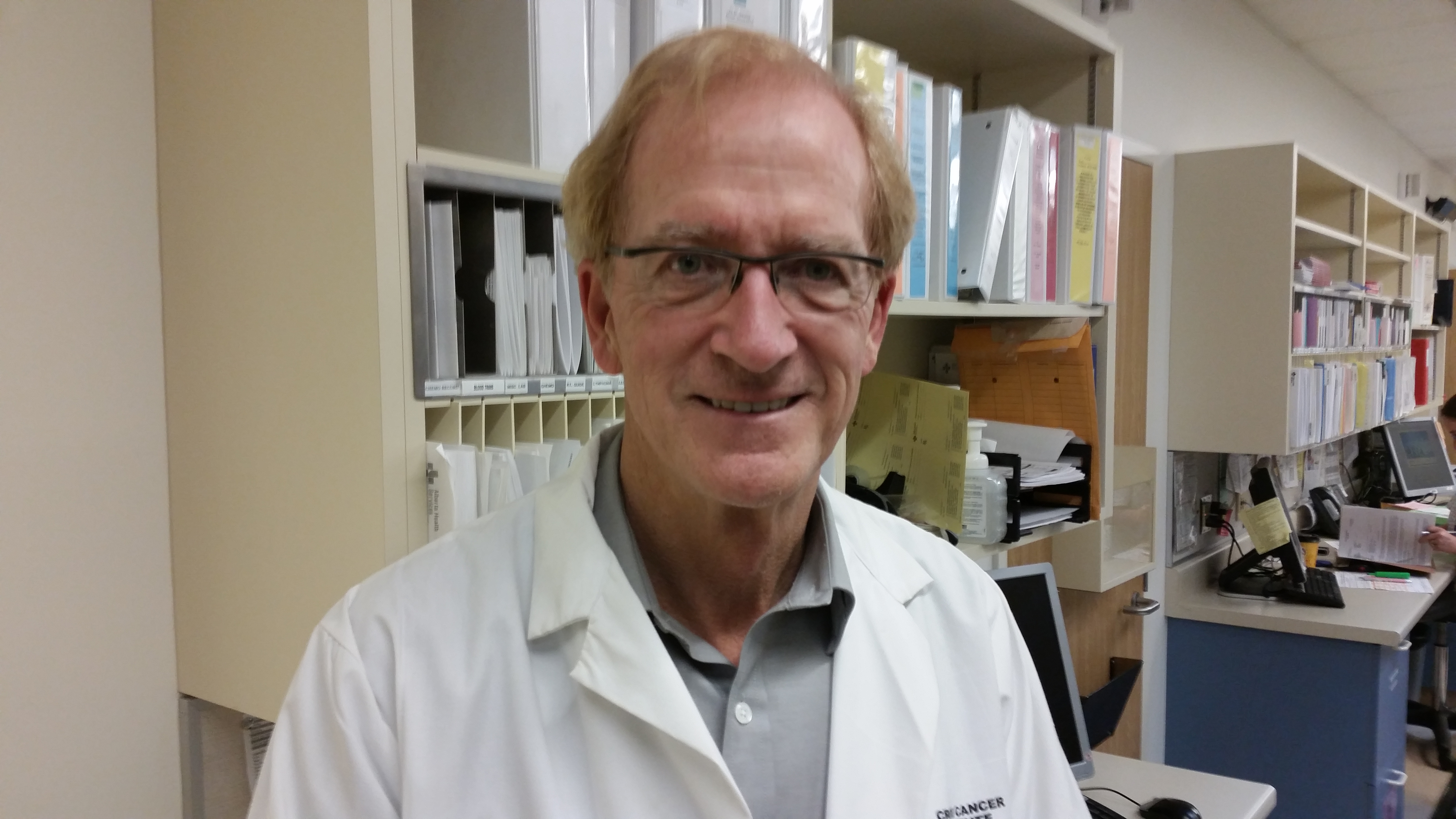
Andrew Belch, professor of Medical Oncology at the University of Alberta and hematologist with the Cross Cancer Institute
For the past six years Andrew Belch has been at the forefront of a global fight against myeloma. Belch, a professor in the University of Alberta's Department of Medical Oncology and a hematologist at the Cross Cancer Institute, has worked with colleagues around the world to find better treatments for patients suffering from the deadly form of cancer. It is a fight he's proud to say has now seen progress after the success of a multi-centre clinical trial held around the world testing a new drug treatment. Belch notes that clinicians and patients at Edmonton's Cross Cancer Institute played a key role.
"We were the second largest accruing site in this study. The largest site that put patients in was in Athens. Edmonton was the second largest site in the world."
The results of the clinical trial, published in The New England Journal of Medicine, prove that a new drug combination of lenalidomide-dexamethasone will not only shrink myeloma, but prolong the duration of remission by an average of four months as compared to current treatment standards.
"This is a big step forward because it shows that simply taking a relatively well tolerated pill-like medicine that doesn't cause sleepiness, doesn't cause neuropathy, really prolongs your remission," says Belch. "This will change global practice."
The clinical trial was the largest ever held for myeloma. Belch along with several international partners helped to arrange it, involving 1623 patients from 246 treatment centres in 18 countries around the world. Patients were enrolled between August of 2008 and March of 2011. The trial tested the efficacy of the new drug combination in patients older than 65 who were ineligible for an alternate type of therapy - stem-cell transplantation.
Three groups of patients were compared - a first group using conventional drug therapy over a period of 18 months, a second group using lenalidomide-dexamethasone over the same period of 18 months, and a third group using the new treatment indefinitely until doctors began to see myeloma once again progressing in the patients. While the first group of patients saw median progression-free survival of 21.2 months, the second group's remission lasted an average of 20.7 months, and the third group testing the new treatment continuously had an average 25.5 months of remission. The study also found patients using the new treatment indefinitely had a slightly better chance of survival over a four year period compared to patients using the other treatments.
Belch says the new therapy shows major progress and he credits the international collaboration among health professionals and patients for speeding the process of taking the initial research from bench to bedside.
"Years ago we were used to taking 5-7 years to a clinical trial, to accrue. And then you'd have to follow them for several more years. So all of a sudden it's taken 10 years to do something by which time the drug is almost out of date," says Belch. "By getting these patients to work as a team, it's revolutionized not just myeloma care, but many other clinical trials as well."
While the new treatment is not a cure, Belch says it is a step forward, offering several more months of remission free life for myeloma patients. The new treatment still needs approval from Health Canada, but Belch believes that should happen sometime over the next year.